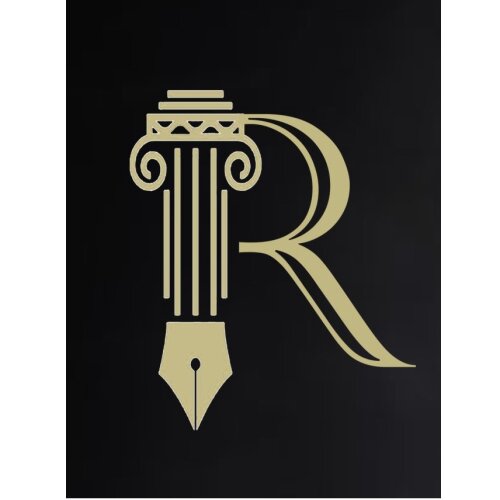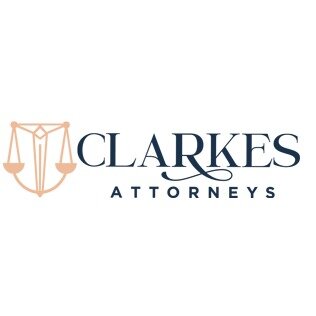Best Child Abuse Lawyers in Lilongwe
Share your needs with us, get contacted by law firms.
Free. Takes 2 min.
Free Guide to Hiring a Family Lawyer
List of the best lawyers in Lilongwe, Malawi
About Child Abuse Law in Lilongwe, Malawi
Child abuse in Lilongwe, Malawi, is a significant concern that affects the wellbeing and safety of children. The Malawi government, along with various NGOs, has been working towards addressing issues related to child abuse by implementing laws and raising awareness. Child abuse encompasses physical, emotional, and sexual abuse, neglect, and exploitation. Authorities in Lilongwe strive to protect children through enforced legal frameworks and social welfare initiatives. The city has seen active campaigns on the prevention of child abuse to ensure every child’s right to safety and healthy development is upheld.
Why You May Need a Lawyer
Engaging a lawyer is crucial in several situations involving child abuse cases. Here are some common scenarios:
- When false accusations of child abuse are made against you, a lawyer can help defend your case and protect your rights.
- If you are a parent or guardian pursuing justice for your child who has been abused, legal representation can help navigate through legal procedures efficiently.
- When seeking custody or protective orders in cases involving abuse, lawyers can provide guidance and representation in court.
- Lawyers can assist in negotiating settlements or agreements in civil cases related to child abuse.
- Legal assistance can help in understanding complex laws and regulations, and in drafting necessary legal documents.
Local Laws Overview
The laws related to child abuse in Lilongwe, Malawi, are derived from both local regulations and international commitments such as the UN Convention on the Rights of the Child. Key aspects of these laws include:
- The Child Care, Protection, and Justice Act, which emphasizes the protection of children's rights and outlines procedures for handling cases of child abuse.
- Provisions of the Malawi Penal Code, which criminalizes acts of physical and sexual abuse against children.
- The roles and responsibilities of Child Protection Officers, social workers, and law enforcement in handling child abuse cases.
- Regulations governing the reporting and investigation of suspected child abuse cases, ensuring the confidentiality and protection of victims.
Frequently Asked Questions
What constitutes child abuse in Malawi?
Child abuse in Malawi involves physical, emotional, or sexual harm or neglect of a child. This includes acts of violence, exploitation, or failure to provide necessary care and protection.
How is child abuse reported in Lilongwe?
Abuse can be reported to local authorities, including the police or Ministry of Gender, Community Development and Social Welfare. Reports are confidential, and steps are taken to protect the victim.
What should I do if I suspect a child is being abused?
If you suspect a child is being abused, report your suspicions to the authorities immediately to ensure the child’s safety and well-being. It’s important not to confront the alleged abuser directly.
Can a lawyer help if I am falsely accused of child abuse?
Yes, a lawyer can provide legal defense, challenge false allegations, and help protect your rights and interests in court.
What legal protections are in place for abused children?
Protections include removal from abusive environments, placing in protective custody, and necessary judicial interventions to ensure safety and well-being.
Is legal aid available for child abuse cases in Lilongwe?
Yes, legal aid is available through various organizations and government programs that assist in offering guidance and representation in child abuse cases.
What is the role of a Child Protection Officer?
Child Protection Officers are responsible for investigating reports of abuse, assessing the child’s safety, and working with social services to support the child and mitigate harm.
Are there support groups for abused children in Lilongwe?
Yes, there are NGOs and community groups that provide counseling, support, and advocacy for abused children and their families.
How are child abuse cases resolved in court?
Cases are resolved through court proceedings that may involve custody determinations, protective orders, and criminal charges against the perpetrator, depending on the nature of the case.
What penalties exist for child abusers under Malawian law?
Penalties can include imprisonment, fines, and other legal sanctions. The severity depends on the abuse and the legal provisions applied in the case.
Additional Resources
There are several resources and organizations in Lilongwe which provide support for child abuse cases:
- The Ministry of Gender, Community Development and Social Welfare: Offers protection and welfare services for children.
- NGOs like Youth Net and Counselling (YONECO) and Save the Children: Provide support, counseling, and advocacy for children affected by abuse.
- The Malawi Human Rights Commission: Engages in monitoring and protection of children’s rights.
Next Steps
If you need legal assistance in a child abuse case, consider taking the following steps:
- Contact a local legal aid organization or lawyer specializing in child protection law for consultation.
- Gather all necessary documentation and evidence related to the case.
- Report the incident to relevant authorities to initiate necessary investigations and protective actions.
- Connect with support groups for emotional and social assistance.
- Stay informed about your rights and legal processes involved in dealing with child abuse cases.
Lawzana helps you find the best lawyers and law firms in Lilongwe through a curated and pre-screened list of qualified legal professionals. Our platform offers rankings and detailed profiles of attorneys and law firms, allowing you to compare based on practice areas, including Child Abuse, experience, and client feedback.
Each profile includes a description of the firm's areas of practice, client reviews, team members and partners, year of establishment, spoken languages, office locations, contact information, social media presence, and any published articles or resources. Most firms on our platform speak English and are experienced in both local and international legal matters.
Get a quote from top-rated law firms in Lilongwe, Malawi — quickly, securely, and without unnecessary hassle.
Disclaimer:
The information provided on this page is for general informational purposes only and does not constitute legal advice. While we strive to ensure the accuracy and relevance of the content, legal information may change over time, and interpretations of the law can vary. You should always consult with a qualified legal professional for advice specific to your situation.
We disclaim all liability for actions taken or not taken based on the content of this page. If you believe any information is incorrect or outdated, please contact us, and we will review and update it where appropriate.










